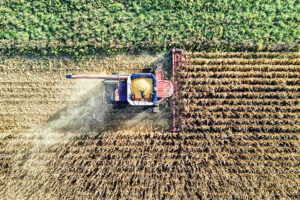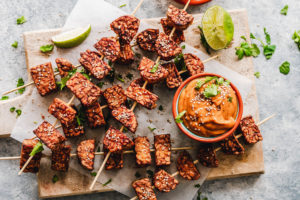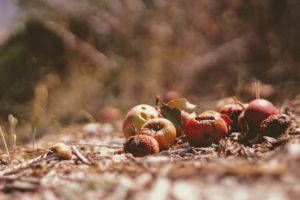Leo Tolstoy once wrote, “Spring is the time of plans and projects”. Ample evidence of this can be seen by wandering past Vancouver’s many community gardens in the spring!
Community gardens provide valuable space for local food production. Vancouver’s climate supports one of the longest growing seasons in Canada, and taking up a community garden plot is a natural step toward reducing overall environmental footprint.
Growing vegetables for food can be as simple a project as choosing a few favourites to reliably and affordably cultivate. The more ambitious gardener may wish to tackle a broader number of foods. Diverse techniques such as permaculture, raised beds, and no-dig can often be seen in a community garden; it’s even possible to grow some foods year-round, with the right varietals and covers. Growing food also offers a chance to actively participate in supporting organic and heritage development, through seed-saving, seed swaps and selective purchase of seed stock.
The first step to community gardening is choosing a garden to join. Most local gardens are operated by non-profit member groups, and will require an annual membership fee and/or plot fee, which helps cover costs such as insurance, shared tools, and land lease.
It’s wise to research and plan to join a garden whose member rules will be a good match. Some important questions to ask in planning:
Location: Will the location be convenient? Is it walkable? Biking distance? How about while toting several tools?
Waitlist: While the City has made expansion of community garden plots a priority, many established gardens still have waitlists of up to a year or more for plots. Ask how long the typical wait may be.
Commitment: Many gardens require attendance at regular meetings, or that members take on additional common area maintenance tasks. Will this need to be factored into the overall time commitment?
Plot Tending Dates: Most gardens have a requirement to visibly begin tending the plot by a certain date. This varies between gardens, but most gardens require that some cultivation occur by mid-May; ask to be sure.
Accessibility and Mobility: There are bed designs which can make gardening easier for those with physical challenges, or who have a hard time crouching or kneeling; ask if building such adaptations will be permitted or encouraged. The Cottonwood Community Garden (of which I am a member) recently built the first fully accessible community garden expansion in the city.
Length of Garden Life: Some community gardens exist in temporarily vacant lots that will see later re-development; would such an arrangement be acceptable?
The City of Vancouver keeps a good, up-to-date online listing of active community gardens along with classes and other resources here:
vancouver.ca/people-programs/community-gardens.aspx
RESOURCES
There are a wealth of good resources available to those planning to become a community gardener in Vancouver, from very basic growing information to in-depth, hands-on skill building workshops.
Check the City’s website; check with your local community centre; visit the library; and check out these groups for some good beginnings.
Village Vancouver: www.villagevancouver.ca
City Farmer: www.cityfarmer.org
UBC Farm: ubcfarm.ubc.ca
Society Promoting Environmental Conservation: www.spec.bc.ca
Farm Folk, City Folk: www.farmfolkcityfolk.ca
Environmental Youth Alliance: www.eya.ca
Lisa MacLeod is proud to garden with her friends at Cottonwood Community Garden and strongly encourages you to pay a visit to the garden (Strathcona Park, off Malkin Ave at Raymur).







